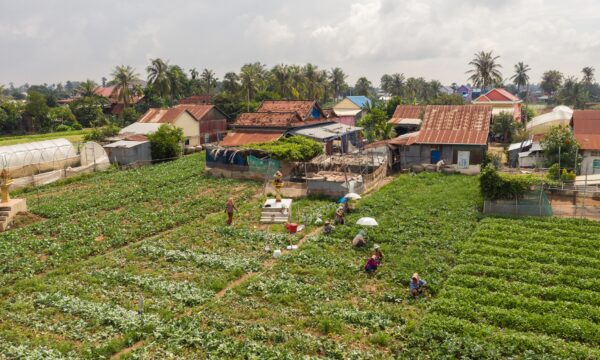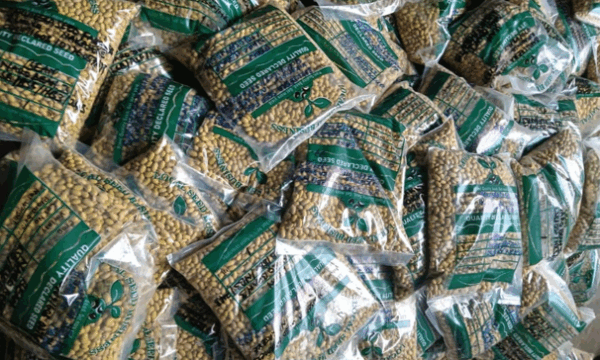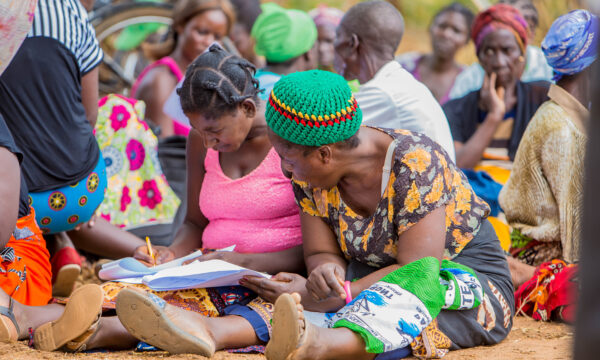The sustainable development goals (SDGs) are the outline to achieving a better and more sustainable future for all. The 17 goals aim to address challenges relating to poverty, inequality, climate change, the environment, and peace and justice. A number of these global goals are central to CABI’s PlantwisePlus programme.
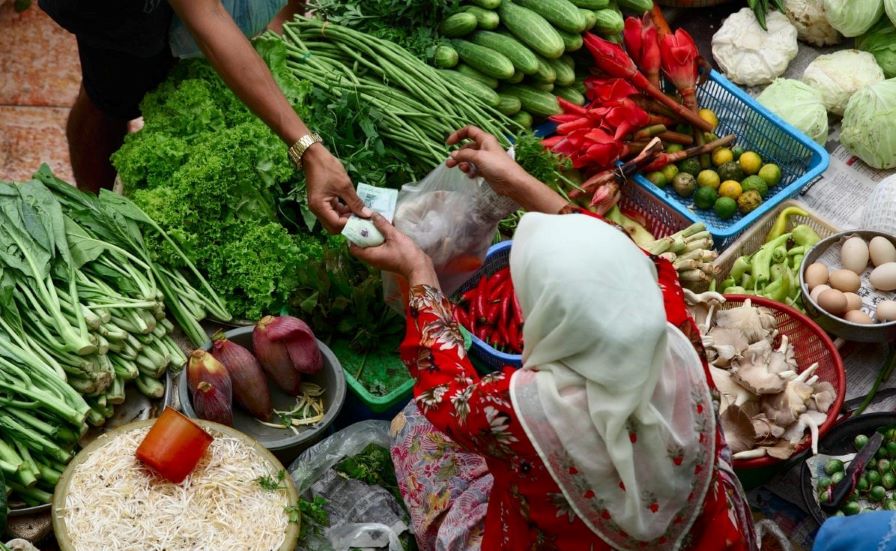
Today 836 million people live in extreme poverty. Many of these people are dependent on small-scale farms for their livelihoods. Without adequate plant health knowledge or access to markets, they remain trapped in a cycle of poverty, struggling to control crop pests and satisfy the demands for food quality and safety standards.
CABI’s global PlantwisePlus programme is working to support low and lower-middle-income countries to predict, prepare themselves for and prevent plant health threats in a changing climate – reducing crop losses and empowering farmers to increase income, food security and food safety by producing more and higher quality food.
As such, PlantwisePlus is highly relevant for the Sustainable Development Goals. It builds on a whole-system approach in the agricultural sector, addressing multiple SDGs simultaneously.
Sustainable Development Goal 2: Zero Hunger
End hunger, achieve food security and improve nutrition and promote sustainable agriculture.
Around 80% of food consumed in developing regions is grown by small-scale farmers. However, crops are increasingly at risk from pests, which account for nearly 40% of all losses.
PlantwisePlus will provide farmers with affordable and safe pest management options, as well as create effective pest monitoring systems so farmers can stay one step ahead of potential crop threats. Using pest risk data and pest distribution observations, plus insights from climate change models, farmers will have the knowledge to respond quickly and effectively to pest threats, improving food and economic security.
Sustainable Development Goal 5: Gender Equality
Achieve gender equality and empower all women and girls.
Women and young people have the potential to play an important role in the future of agriculture. Though women make up 43% of the global agricultural workforce they rarely control decision-making on family farms. Female farmers face several barriers and often find it harder than men to access agricultural information and generate incomes from farming.
PlantwisePlus aims to improve women’s access to agricultural advisory services. In 2021 the program conducted a gender assessment in Ghana on public- and government-provided agricultural advisory services. The assessment looked at the national enabling environment, organizational culture and skills, attitudes and motivations of extension staff and perception of farmers on advisory services. Not only will this help identify strengths and limitations in the provision of gender advisory services, but the results will also influence further advocacy, communication and capacity-building activities.
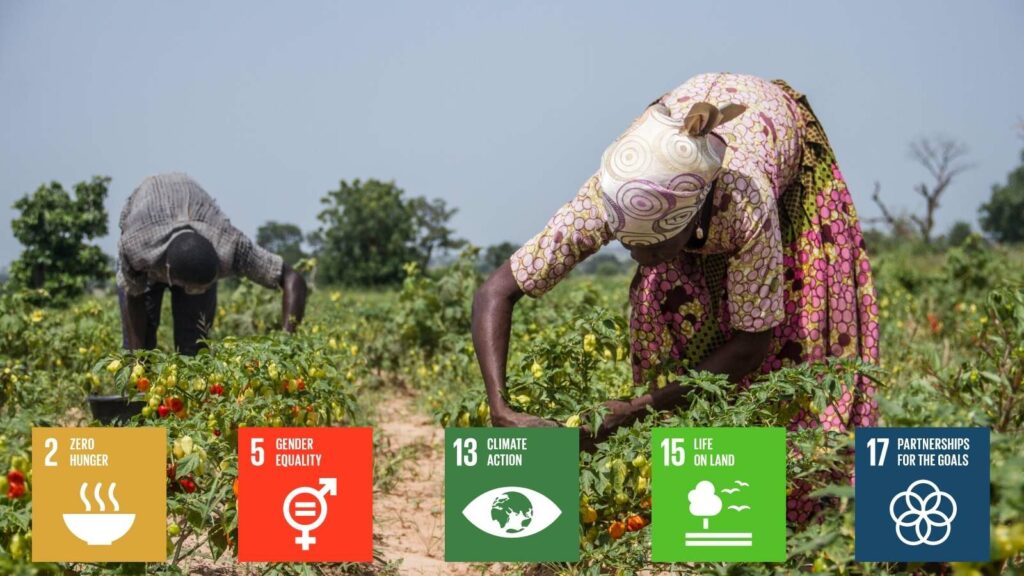
Sustainable Development Goal 13: Climate Action
Take urgent action to combat climate change and its impacts.
Climate change is creating a progressively vulnerable situation for farmers by introducing new threats and intensifying existing ones. Climate change enables pests, diseases and weeds to spread to new areas and increase in number. Climate shocks such as heatwaves and flash floods are increasing in frequency and distribution. Meanwhile, risks like soil salinity, desertification and loss of local biodiversity threaten future productivity. Smallholder farmers need support and solutions so they can respond to these threats to productivity and their livelihoods.
PlantwisePlus will provide climate resilience and adaptation information through the PlantwisePlus digital support tools, such as the Plantwise Knowledge Bank, helping farmers to minimise the negative impacts of climate shocks and stresses. What’s more, communications channels and networks established by Plantwise will provide advice to farmers and agricultural service providers on climate adaptation practices, strategies and technologies, including crop diversification options and early warning of pest attacks. This also empowers farmers to be part of the solution to climate change, as chemical pesticide use accounts for up to 16% of on-farm greenhouse gas emissions.
Sustainable Development Goal 15: Life on Land
Protect, restore and promote sustainable use of terrestrial ecosystems, sustainably manage forests, combat desertification, and halt and reverse land degradation and halt biodiversity loss.
The increase in devastating crop pests, such as the fall armyworm, cassava brown streak disease and tomato pinworm has led to a growth in pesticide use among smallholder farmers. However, even when used properly chemical pesticides can have a negative impact on human health and the environment. Pesticides can contaminate the air, ground and water, killing a range of other organisms including beneficial insects. PlantwisePlus will work to ensure farmers have access to affordable, more sustainable plant protection products, such as biocontrol and biopesticides. These use living organisms, such as insects or pathogens, to control pest populations making them a far more environmentally-friendly option.
The CABI BioProtection Portal is a PlantwisePlus online tool that helps growers and agricultural advisors to identify, source and correctly apply biocontrol and biopesticide. It provides information on where to source products that are registered locally and meet market requirements.
Sustainable Development Goal 17: Partners for the Goals
Strengthen the means of implementation and revitalize the global partnership for sustainable development
In response to SDG 17, PlantwisePlus role will be to facilitate the bringing together of a range of public, private, and civil society organisations, building their capacity to respond to plant health risks and developing cutting edge digital tools.
Further reading
Find out more at plantwise.org
CABI gratefully acknowledges the financial support of the Directorate General for International Cooperation (DGIS, Netherlands), the European Commission Directorate General for International Partnerships (INTPA, EU), the UK Foreign, Commonwealth & Development Office (FCDO), the Swiss Agency for Development and Cooperation (SDC), for the PlantwisePlus programme.
Related News & Blogs
Post-registration pesticide reviews: Experiences, learnings and best practices
CABI’s PlantwisePlus programme recently hosted a webinar to raise awareness and potential solutions to the challenges around post-registration pesticide reviews – a vital stage in the review process that helps ensure compliance with safety regulations…
9 July 2025


